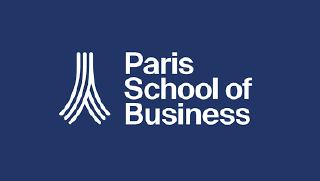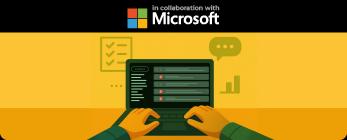All courses
Domains
Doctorate
Artificial Intelligence
Machine Learning
Gen AI & Agentic AI
MBA
Marketing
Management
Education
Project Management
Data Science
Doctorate
For All Domains
IIITB & IIM, Udaipur
Chief Technology Officer & AI Leadership ProgrammeSwiss School of Business and Management
Global Doctor of Business Administration from SSBMEdgewood University
Doctorate in Business Administration by Edgewood UniversityGolden Gate University
Doctor of Business Administration From Golden Gate UniversityRushford Business School
Doctor of Business Administration from Rushford Business School, SwitzerlandGolden Gate University
Master + Doctor of Business Administration (MBA+DBA)Leadership / AI
Golden Gate University
DBA in Emerging Technologies with Concentration in Generative AIGolden Gate University
DBA in Digital Leadership from Golden Gate University, San FranciscoArtificial Intelligence
Degree / Exec. PG
IIIT Bangalore
Executive Diploma in Machine Learning and AIOPJ Global University
Master’s Degree in Artificial Intelligence and Data ScienceLiverpool John Moores University
Master of Science in Machine Learning & AIGolden Gate University
DBA in Emerging Technologies with Concentration in Generative AIExecutive Certificate
IIITB & IIM, Udaipur
Chief Technology Officer & AI Leadership ProgrammeIIIT Bangalore
Executive Programme in Generative AI for LeadersupGrad | Microsoft
Gen AI Foundations Certificate Program from MicrosoftupGrad | Microsoft
Gen AI Mastery Certificate for Data AnalysisupGrad | Microsoft
Gen AI Mastery Certificate for Software DevelopmentupGrad | Microsoft
Gen AI Mastery Certificate for Managerial ExcellenceOffline Bootcamps
upGrad
Data Science and AI-MLMachine Learning
Machine Learning
Gen AI & Agentic AI
Gen AI & Agentic AI
IIIT Bangalore
Executive Programme in Generative AI for LeadersMasters

Paris School of Business
Master of Science in Business Management and TechnologyO.P.Jindal Global University
MBA (with Career Acceleration Program by upGrad)Edgewood University
MBA from Edgewood UniversityO.P.Jindal Global University
MBA from O.P.Jindal Global UniversityGolden Gate University
Master + Doctor of Business Administration (MBA+DBA)Executive Certificate
IMT, Ghaziabad
Advanced General Management ProgramMarketing
Executive Certificate
upGrad | Microsoft
Gen AI Foundations Certificate Program from MicrosoftupGrad | Microsoft
Gen AI Mastery Certificate for Content CreationOffline Bootcamps
upGrad
Digital MarketingManagement
Degree
O.P Jindal Global University
MSc in International Accounting & Finance (ACCA integrated)
Paris School of Business
Master of Science in Business Management and TechnologyGolden Gate University
Master of Arts in Industrial-Organizational PsychologyExecutive Certificate
IIM Kozhikode
Human Resource Analytics Course from IIM-KupGrad | Microsoft
Gen AI Foundations Certificate Program from MicrosoftEducation
Education
Northeastern University
Master of Education (M.Ed.) from Northeastern UniversityEdgewood University
Doctor of Education (Ed.D.)Edgewood University
Master of Education (M.Ed.) from Edgewood UniversityProject Management
Certification
Knowledgehut
Leadership And Communications In ProjectsKnowledgehut
Microsoft Project 2007/2010Knowledgehut
Financial Management For Project ManagersKnowledgehut
Fundamentals of Earned Value Management (EVM)Knowledgehut
Fundamentals of Portfolio ManagementKnowledgehut
Fundamentals of Program Management-35c169da468a4cc481c6a8505a74826d.webp&w=128&q=75)
Knowledgehut
CAPM® CertificationsKnowledgehut
Microsoft® Project 2016Certifications & Trainings
-7f4b4f34e09d42bfa73b58f4a230cffa.webp&w=128&q=75)
Knowledgehut
PMP® Certification-7f4b4f34e09d42bfa73b58f4a230cffa.webp&w=128&q=75)
Knowledgehut
PMI-RMP® Certification-7f4b4f34e09d42bfa73b58f4a230cffa.webp&w=128&q=75)
Knowledgehut
PMP Renewal Learning PathKnowledgehut
Oracle Primavera P6 V18.8Knowledgehut
Microsoft® Project 2013-7f4b4f34e09d42bfa73b58f4a230cffa.webp&w=128&q=75)
Knowledgehut
PfMP® Certification CourseKnowledgehut
Project Planning and MonitoringPrince2 Certifications
Knowledgehut
PRINCE2® FoundationKnowledgehut
PRINCE2® PractitionerKnowledgehut
PRINCE2 Agile Foundation and PractitionerKnowledgehut
PRINCE2 Agile® Foundation CertificationKnowledgehut
PRINCE2 Agile® Practitioner CertificationManagement Certifications
-7f4b4f34e09d42bfa73b58f4a230cffa.webp&w=128&q=75)
Knowledgehut
Project Management Masters Certification ProgramKnowledgehut
Change ManagementKnowledgehut
Project Management TechniquesKnowledgehut
Product Management Certification ProgramKnowledgehut
Project Risk ManagementData Science
Degree / Exec. PG
O.P Jindal Global University
Master’s Degree in Artificial Intelligence and Data ScienceIIIT Bangalore
Executive Diploma in Data Science & AILiverpool John Moores University
Master of Science in Data ScienceExecutive Certificate
upGrad | Microsoft
Gen AI Foundations Certificate Program from MicrosoftupGrad | Microsoft
Gen AI Mastery Certificate for Data AnalysisupGrad | Microsoft
Gen AI Mastery Certificate for Software DevelopmentupGrad | Microsoft
Gen AI Mastery Certificate for Managerial ExcellenceupGrad | Microsoft
Gen AI Mastery Certificate for Content CreationOffline Bootcamps
upGrad
Data Science and AI-MLupGrad
Data AnalyticsFresh graduates
Domains
Data Science
Management
Marketing
Data Science
Bootcamp
Offline Bootcamps
upGrad
Data Science and AI-MLupGrad
Data AnalyticsManagement
Marketing
Bootcamp
upGrad Campus
Advanced Certificate in Performance MarketingOffline Bootcamps
upGrad
Digital Marketing- Study abroad
- Offline centres
More
RESOURCES
BlogsCutting-edge insights on education
WebinarsLive sessions with industry experts
TutorialsMaster skills with expert guidance
Learning GuideResources for learning and growth
COMPANY
Careers at upGradYour path to educational impact
Hire from upGradTop talent, ready to excel
upGrad for BusinessSkill. Shape. Scale.
Talent Hiring SolutionsReach. Rekrut. Redefine.
Experience centerImmersive learning hubs
About usOur vision for education
OTHERS
Refer and earnShare knowledge, get rewarded
FinTech Courses Online
FinTech deploys easy-to-use technology to make financial services simpler and accessible to everyone.
20(1)-70997669bd1a4ba2b565901e0eae2fa5%20(1)-de9c82be352d44bcb6a48fecf60b4465.jpeg&w=3840&q=75)
FinTech Courses Online
The bitcoins you recently bought on Coinbase? FinTech. The online banking services you access via your smartphone? It’s FinTech in action. The PayPal payment you made for the new laptop you ordered online? Again, FinTech. The robo-advisors you turn to for financial planning advice? That’s FinTech too.
FinTech deploys easy-to-use technology to make financial services simpler and accessible to everyone. It removes the reliance on traditional banking systems and the need to set foot in brick-and-mortar financial institutions. From mobile banking and online payment platforms allowing users to make instant financial transactions to crypto and stock trading, there is virtually nothing FinTech cannot do.
FinTech empowers both businesses and consumers to take charge of their finances. It enhances financial literacy, breaking down silos and improving financial outcomes with the help of advanced technology. Although FinTech has been around for decades, it is only in the last few years that FinTech companies have transformed how people engage with financial services.
Let’s dive deep into FinTech and understand what it means.
FinTech, a portmanteau of the words “Financial” and “Technology,” describes any new or emerging technology aimed at automating and improving the delivery of financial services. It typically leverages advanced software and algorithms to help financial institutions deliver financial services faster and more innovatively than previously possible.
Here’s a good example to explain the impact of FinTech. Imagine having to pay for all your online purchases with cash. Physical transactions are inconvenient regardless of where you are or if you have money. Now, think of internet banking or a mobile payment app like PayPal. These services let you pay for online purchases instantly and in real-time. That’s FinTech for you.
In general terms, FinTech describes the use of the internet, software technology or cloud services to connect with or use financial services on computer and mobile devices. Although the term’s original use was restricted to the technology financial institutions used in their back-end systems, FinTech’s modern implications focus on customer-oriented services. From an investor’s ability to see the stock performance in real-time and mobile banking apps to tools financial institutions use to make critical business decisions, all are part of the FinTech revolution.
The origin of FinTech goes back to the 19th century. Revisiting FinTech history makes it easier to understand and appreciate where this financial innovation is headed in the future.
Let’s break up the FinTech timeline beginning with the mid-1800s.
The 1860s
Giovanni Caselli developed the pantelegraph, an early form of the modern-day fax machine. Banks mostly used the device to verify signatures through transmissions over telegraph lines. While it was one of the earliest known applications of FinTech, the pantelegraph was slow and took about 108 seconds for a 25 words sheet of paper to transmit.
1880
A couple of years after the introduction of the pantelegraph, merchants and consumers in the United States started using charge coins and plates to exchange goods and services for credit. Charge coins and plates were metallic tokens displaying details like the customer’s name, address, identification number, the cardholder’s signature and the issuer’s name. While charge coins later became obsolete, charge plates were replaced by modern credit cards.
1918-1919
In the first instance of digitalisation of money, the United States Federal Reserve Bank developed a system for the electronic transfer of funds. Then known as Federal Reserve Wire, the Morse code-based system is now known as Fedwire Funds Service. It is a real-time gross settlement (RTGS) funds transfer system in the USA. In 1919, economist John M. Keynes published his book ‘The Economic Consequences of Peace,’ considered the first literature linking finance and technology.
1950-1958
As a precursor to the modern credit card, Diner’s Club Inc. invented the first universal credit card to facilitate dining on credit at multiple establishments throughout the US. It was a big deal then, and only 200 members had access to the exclusive privilege. The membership grew to 42,000 within two years of the Diner’s Club card introduction. Its popularity nudged the introduction of the American Express Company credit card in 1958, making American Express the largest payment network globally.
1960-1967
The 1960s witnessed some significant advancements in FinTech. In 1960, Quotron, a Los Angeles-based company, did away with the use of printed ticker tapes and started offering money managers and brokers stock market quotes on electronic screens. It enabled brokers to get the latest prices for securities and traded investments.
In 1966, the telex network was introduced as a replacement for the telegraph to make financial communication easier. However, the next phase of the FinTech revolution began with a North London branch of Barclay’s Bank installing the first automated teller machine (ATM).
1971-1973
One of the most prominent FinTech milestones was conquered in 1971 with the establishment of the US National Association of Securities Dealers Automated Quotations or the NASDAQ. As the world’s first electronic stock market, NASDAQ transformed the bidding process and helped modernise the IPO process. The establishment of NASDAQ was followed by the launch of SWIFT in 1973 to facilitate financial transactions and payments service between worldwide banks.
1982-1983
The 1980s were marked by two significant FinTech milestones: e-trading (electronic trading) and online banking. In 1982, E-Trade Financial Corporation (originally TradePlus) became the first online brokerage company. Morgan Stanley acquired the firm in 2020.
Another significant leap in the FinTech evolution came in 1983, with the Bank of Scotland providing its Nottingham Building Society customers with online banking access. In the same year, the Chemical Bank in the US introduced online banking, but the idea was shelved in 1989 due to lack of reach. By the late 1990s, most American banks had set up their internet banking websites after the staggering success of online banking in the United Kingdom.
2009-2017
The year 2009 ushered in the crypto rage, introducing people to an entirely new concept of currency trading with the release of Bitcoin. In 2011, Google developed and released Google Pay Send (formerly known as Google Wallet), allowing smartphone users to make instant payments through their phones.
From 2014 onwards, India, China and Africa began emerging as potential players in the FinTech sector. The development of financial software by Indian IT firms, payment banks in India, Alipay in China and M-Pesa in Africa were key SaaS developments. Come 2017, Alibaba introduced the quirky yet innovative concept of “smile to pay” facial recognition payments across KFC outlets in China. All users had to do was smile at a 3D camera to pay for their food.
2020 and beyond
FinTech today marks a major shift from the western domination of the financial world to global digital banking advancements. Technological innovations in the form of Big Data, artificial intelligence (AI), robotic process automation (RPA) and the like have and continue to transform the banking, financial services and insurance (BFSI) sector. While they make the future of FinTech look bright, the industry has its share of challenges.
Although it may be difficult to accurately predict the future of financial technology in the light of the pandemic, FinTech advancements so far are proof of the readiness of the financial industry to evolve and adapt with time.
FinTech has given us the luxury of access to financial services from the comfort of our homes or wherever we are. Want to send money to your friend? All you need to do is fire up an online payment app on your smartphone. Want to know your bank balance? Log in to your online banking account and pull up real-time information without visiting the bank physically.
However, the convenience FinTech offers us today is the result of decades of evolution and advancement on the technological front.
The financial sector has been using technology since way before FinTech (as we know it today) existed or even before the internet was born. So, what was financial technology like in the earlier days
The earliest applications of technology by trading firms and banks were the use of physical media like paper and coins containing information about the customer and the issuer. However, transferring these documents required physical modes of transportation, restricting the scope of technology use to specific locations.
The development of the telegraph system in the mid-19th century made it possible to separate information from its physical form and transmit it over longer distances. These analogue technologies revolutionised long-distance communication. As financial technology, these lasted up to the mid-20th century. Henceforth, innovations in various forms of digital technology led to the inception of information and communication technology in the banking and trading sectors. However, the widespread use of cryptocurrency from 2009 onwards set the seal on the modern concept of FinTech.
The remarkable growth of FinTech in the last few years can be primarily attributed to the following factors:
![]()
1. Lack of faith in the traditional financial institutions
Since the financial crisis of 2008, financial services firms worldwide have been hit with a penalty of USD 36 billion for non-compliance with know-your-customer (KYC), anti-money laundering (AML) and sanctions regulations. Furthermore, 12 of the world’s top 50 banks were fined in 2019.
While these numbers highlight the loopholes in the banking sector, they also underscore public scepticism towards the banking and finance industry. At the same time, the lack of faith in traditional banking services has proved to be an ideal opportunity for the FinTech industry to attract customers with alternative solutions.
2. Focus of FinTech on small and medium players
The financial industry has traditionally focused on high-margin enterprises, with small and medium businesses often going unnoticed. It is typical for banks to cut down on retail banking ventures with a greater focus on more profitable banking areas like investment and commerce.
The undermining of retail banking causes lower-margin businesses to get side-tracked without realising their full potential. However, the situation has led to the rise of FinTech players focused on these negligent areas of banking. Instead of focusing solely on profits, a greater emphasis on various enterprises' long-term growth and potential is a more reasonable approach.
3. More streamlined and strategic approach of FinTech
One of the main advantages of FinTech players over traditional banks is the former’s focused and streamlined approach to financial services, including better customer service. FinTech players typically direct their focus toward a single product or service. It has lower operating costs and enables them to introduce a more significant innovation in their product or service while offering it cheaper than banks.
In addition, FinTech services are more customer-centric, focused on solving customer problems and enhancing their experience. Finally, cutting-edge technology like AI and blockchain gives FinTech a competitive edge over cumbersome legacy systems.
4. Increased internet speed and penetration
The development and advancement of telecommunication infrastructure and networks have significantly impacted global internet penetration. The number of internet users has also increased dramatically since 2005, thanks to mobile technology developments and its role in modernising the world's less-developed regions.
Coupled with improved internet speeds, the increased global internet coverage has been a key driver of the rapid growth of FinTech in the last few years. While most of the global population would not have imagined access to instant digital financial services a decade back, the ground reality is starkly different today.
Mobile banking is a digital banking service that enables customers to carry out financial transactions on their mobile devices such as smartphones, tablets and the like. Customers can leverage mobile banking to check their account balance, transfer funds, change passwords, pay bills and more.
Categories of mobile banking services
1. Access to account details
With mobile banking, customers can view their account balance and transaction history, get an e-statement of account, review and view card or loan statements, access e-passbooks and even manage insurance policies.
2. Transactions
Transactional services offered by mobile banking include transferring funds to self, bank-to-bank transfers, payments to third parties, or making payments via other applications or prepaid service providers.
3. Investments
Mobile banking allows customers to manage their investments without visiting a bank. These services include opening fixed or recurring deposits, mutual fund investments and a real-time view of investment portfolios.
4. Support services
Apart from the above facilities, support services enable customers to locate ATMs or branches, track applications, lodge complaints, cancel or stop cheques, order new cheques, follow up on card requests and get the latest offers from banks.
1. Mobile banking over SMS
SMS banking is helpful for customers who do not have smartphones or internet access. However, customers must register their mobile number with the bank to provide SMS banking services.
2. Mobile banking over apps
Customers can also access mobile banking services via dedicated mobile applications (such as iMobile by ICICI Bank and SBI Yono), provided they have a smartphone and a stable internet connection.
3. Mobile banking over USSD
Mobile banking over unstructured supplementary service data or USSD allows customers to access essential banking services such as fund transfer, balance enquiry and OTP generation without any smartphone or internet requirement.
Mobile payments are another beneficial outcome of the FinTech revolution. Paying with your smartphone is one of the most convenient options since you do not have to worry about having your cards or wallet. Besides the convenience factor, mobile payments are more secure than traditional magnetic stripe cards, prone to data breaches.
What are mobile payments?
Mobile payments have gained significant traction in recent years as a secure form of contactless payment. These are regulated digital transactions through mobile devices like smartphones or tablets.
To use mobile payment services, you must have a mobile wallet. A mobile wallet is essentially a digital wallet or app that stores your debit or credit card information, allowing you to make instant payments using your mobile device. You can download the mobile wallet app and add your debit or credit card details. Mobile wallet apps enable fast, convenient and secure transactions. They typically require facial recognition, thumbprint authorisation, or other security measures to access the digital wallet.
How do mobile payments work?
Mobile wallets work using QR code technology or near-field communication (NFC) technology. The technology enables two devices (in this case, the mobile device and the payments reader) to communicate wirelessly when they are near each other. NFC is a subset of radio-frequency identification (RFID) that uses radio waves to identify things.
Mobile wallets digitally store payment-related details in an encoded format for maximum security. Besides payment details, digital wallets also store other information related to loyalty programs, coupons, rewards and personal identity. However, wallets differ in terms of how they store payment information. Mobile wallets enable cashless, contactless transactions with only a few clicks, are safe and secure and allow fast and convenient payments across multiple accounts. Google Pay and Apple Pay are examples of mobile payment apps
A digital currency is a digital form of fiat currency only available in electronic form. It is also known as electronic money, digital money, or cybercash. Digital currencies are typically the liability of the central bank.
Currently, the United States has two types of central bank money: the Federal Reserve-issued physical currency and digital currencies commercial banks hold at the Fed. However, central bank digital currency (CBDC) available to the general public would differ from existing digital currencies because a CBDC would have the Fed’s backing instead of a commercial bank’s. If rolled out in India, digital currencies would be backed by the Reserve Bank of India (RBI).
Types of digital currencies
![]()
Digital currency is frequently used as an umbrella term to refer to any type of money existing in the electronic format. Accordingly, there are three broad categories of digital currencies:
1. Central bank digital currency (CBDC)
Central bank digital currencies include regulated digital currencies issued and backed by a nation's central bank. CBDCs exist in purely digital form and may be a replacement or supplement to traditional fiat currency.
2. Virtual currency
Unlike CBDCs, virtual currencies are unregulated digital currencies. The controlling power of these virtual currencies lies with the founding organisation or stakeholders involved in their creation.
3. Cryptocurrency
Cryptocurrencies are blockchain-based digital currency that uses cryptography to verify and secure transactions over a decentralised network of computers. Bitcoin and Ethereum are the best-known examples of cryptocurrency.
What is blockchain technology?
A blockchain is a digitally distributed decentralised public ledger shared across a peer-to-peer computer network. It is a database that stores information digitally.
Unlike a traditional database that organises data into tables, a blockchain groups information into blocks and each block has a specific storage capacity. When a block is filled, it is closed and linked to a previously-filled block, forming a data chain known as the blockchain. Information that follows the freshly added block is again put together as a new block and subsequently added to the blockchain. The blockchain structure creates an irreversible data timeline, making the data immutable. Cryptocurrency is one of the most popular blockchain-based applications.
Equity funding and crowdfunding give startups and early-stage companies the option to raise money without giving absolute control to venture capitalists. Let’s look at the basics of equity funding and crowdfunding.
Equity funding
Equity financing or equity funding is raising capital through the sale of shares. In other words, a company sells its shares in exchange for cash, and the investors benefit from the company’s success. Startup companies may use equity funding to raise money to meet short-term or long-term financial commitments such as paying bills or investing in growth. The most common types of equity investors include family members, friends, venture capitalists, angel investors or networks, private equity funds, government funds, corporates or the crowd (through crowdfunding platforms).
Crowdfunding
Crowdfunding entails raising small capital amounts from many people to finance a startup or new business venture. It works on the principle of trust and support because individuals contribute only if they believe in the cause. Crowdfunding campaigns require significant effort to promote and publicise the fundraising cause.
Crowdfunding is mainly of four types:
![]()
1. Equity-based crowdfunding - Startups and small businesses sell some of their shares in exchange for funding.
2. Debt-based crowdfunding - Involves raising funds from individuals as a loan and must be repaid with interest within a stipulated time.
3. Donation-based crowdfunding - A form of fundraising for a person, company or social cause for nothing in return.
4. Reward-based crowdfunding - Donors believe and donate toward a cause in exchange for a small reward for their contribution.
FinTech has proved to be a blessing for individuals who do not have the time to keep a tab on their income and expenses. Personal finance management (PFM) apps allow better money management and provide users with additional services like financial advice.
Put simply, a PFM is a mobile application available in the App Store and Google Play that users can download and install to track personal finances. These apps assist users in tracking day-to-day expenses such as cab bookings, food orders, mobile recharges and the like in real-time. Apart from budgeting and expense management, many PFMs also help in other financial activities, such as managing mutual fund investments and obtaining quick loans. Most of these personal finance apps integrate with digital wallets for secure record-keeping. Money tracking through these apps is a practical way to avoid unnecessary expenditures and stay in good financial shape.
Examples of personal finance management apps
India | USA | UK |
|
|
|
Robo-advisors are digital financial advisors that manage investments and provide financial advice with minimum human intervention. A robo-advisor takes inputs from the user about the latter’s financial situation and investment goals through an online survey to provide algorithm-driven financial planning advice. Robo-advisors typically provide a host of services such as easy account setup, portfolio management and future financial planning.
The first robo-advisor called Betterment was launched in 2008. It is low-cost, has great cash management features, requires no minimum balance and provides an easy-to-navigate online interface to manage buy-and-hold investments. In 2022, the company acquired Makara, the first SEC-registered robo-advisory platform in the crypto industry.
Robo-advisors ask users demographic and psychographic questions to understand their investment preferences, goals and risk appetite. The most simplistic type of robo-advisor uses user responses to create a model investor profile. More advanced and sophisticated robo-advisors deploy artificial intelligence and data analytics to obtain more in-depth information. For instance, they use bank and credit card transactions and investment activities to determine the user’s financial behaviour. Advanced robo-advisors often reveal higher spending patterns, overlooked liabilities and other financial behaviour that a person may otherwise be unaware of.
The remarkable growth of FinTech has challenged legacy banking systems to reconsider how they provide financial services. While traditional banking is designed around linear and manual processes, FinTech takes a more networked, streamlined, automated and data-driven approach.
The enhanced smartphone and internet usage has nudged customers towards FinTech-enabled services that have transformed the digital customer experience. From handling personal finances to managing investment portfolios, FinTech has left modern customers spoilt for choice in terms of digital financial services.
Likewise, FinTech has changed the way how businesses operate. Turning to a conventional bank or spending months talking to an investor are not the only options for today’s startup companies to raise finances for the business. From mobile payments and crowdsourcing platforms, entrepreneurs today have cost-effective and secure solutions to set up and expand their businesses.
FinTech matters to businesses for the following reasons:
![]()
- Security - FinTech-enabled transactions are safer and more secure with high-level security measures like thumbprint authorisation or facial recognition.
- Accessibility - Increased internet penetration and technologies like WiFi have made FinTech a widespread phenomenon in businesses.
- Affordability - FinTech services are relatively cheaper due to the immense competition among various FinTech service provider companies.
- Innovation - Thanks to accessible financing, FinTech has enabled companies across different sectors to bring innovation to their products and services.
Boost in sales - Businesses can reach out to global customers and increase sales via online payment channels without the limitation of physical transactions.
FinTech works by employing various technologies such as artificial intelligence, big data and blockchain to enable highly-secure financial transactions over a network. It facilitates reliable, efficient and hassle-free transactions using technology with minimum human interference.
Financial technologies typically leverage software that functions in real-time over the internet. The electronic financial activities that FinTech facilitates are supported by advanced back-end engineering, algorithms and cloud-based technology.
Although FinTech has various applications, the most common use is digitally transferring funds. What differentiates a FinTech application from the other is how the funds are transferred, the reason for the transfer and the parties involved. Common FinTech solutions include tax and personal finance apps, AI-enabled robo-advisors, crowdfunding platforms, stock trading apps, internet banking and mobile payment apps.
FinTech is a rapidly expanding industry with the capacity to transform global finances completely. Although the COVID-19 pandemic has been instrumental in bringing FinTech to the frontline of financial services, there are other factors with the potential to impact how financial technology will evolve.
Below we discuss the top four trends likely to define the fate of the FinTech industry:
1. Digitalisation
Almost every industry has felt the impact of the digital revolution, including the FinTech industry. From managing customer relationships to keeping track of day-to-day business operations, automation is now a vital aspect of every business. Digitalisation is inevitable, and the COVID-19 pandemic has only fueled the transformation. Mobile banking, robo-advisors, cryptocurrency, InsurTech and a lot more - the FinTech landscape is constantly changing as technology digs deep into customer behaviour to meet and exceed their expectations. FinTech-enabled services are also changing business environments, a trend we will likely see more of in the future.
2. Cryptocurrency and blockchain
The emergence and development of cryptocurrency and blockchain technology have further pushed FinTech to the forefront. Cryptocurrencies are a form of digital or virtual currency built on blockchain technology and protected by encryption. Blockchain eliminates the need for a central authority to verify asset transfers and makes counterfeiting practically impossible.
Blockchain also creates efficiency, completing transactions in seconds or minutes in contrast to traditional bank settlements. According to research, blockchain in the FinTech market is forecasted to grow from USD 231.63 million in 2017 to USD 6700.63 million by 2023, with a CAGR of 75.2%.
3. Mobile banking and cashless transactions
FinTech has proved that consumers can easily access their bank accounts and manage their finances through their smartphones. With such accessibility and convenience at practically no cost, the popularity of mobile banking and cashless transactions will invariably increase in the future.
The rise of ‘Neobanks’ or digital banks is also proof that customers are gradually moving away from the legacy-based infrastructure of traditional banks for faster services and a better experience. Moreover, Neobanks are much more competent in providing services like invoicing software, payment gateways and multiple cash management options. The demand for cashless transactions is likely to be higher in a post-pandemic world.
4. Regulatory interest in FinTech
Regulators are showing an active interest in understanding the FinTech industry, particularly the risks and compliance issues associated with this field. Governments and regulators in many developing and developed countries offer incentives and relax regulations to promote technology in the banking and financial space.
At the same time, FinTech firms are more exposed to consumer lending, liquidity and other risks than traditional banks. These factors pose a significant challenge for regulatory authorities since the flexibility and risk management capacity of FinTech firms during an economic downturn remains unpredictable.
With the rampant adoption of technology in the financial industry, traditional banks and FinTech companies seem to be competitors fighting for market share. However, the ground reality is quite different. The two appear to be opposing forces, but each side relies on the other.
Today’s FinTech firms obtain funds from banks and typically depend on banking and insurance services to deliver their specialised products. While banks invest in FinTech startups or acquire them to leverage technology for upgrading their legacy systems and offerings. Although banks acquiring FinTech firms is not common, we have some examples. In 2020, American Express acquired small business loans FinTech Kabbage. Also, American banking giant JPMorgan acquired ESG-focused FinTech startup OpenInvest in 2021.
The current scenario presents a strong inter-dependency between the FinTech industry and the traditional banking sector. However, it is yet to witness how the future of the FinTech industry pans out in the light of the prevalent trends (discussed in the previous section).
FinTech in the Banking Industry
Lending and borrowing money has traditionally been the core business of banks and financial institutions. Technological advancements in this space have enabled banks to customise and streamline their products and services. Yet, small businesses, startups and select individuals frequently face obstacles in availing of loan facilities and other banking services. Moreover, strict regulations, high operating costs, legacy infrastructure and a lack of customer involvement with the centre of operations were some prominent factors driving the evolution of the FinTech industry.
FinTech companies entered the business as a viable alternative to traditional banking. Not only did it increase participation and access, but it also provided consumers direct control over their finances through straightforward yet cutting-edge technology.
Let’s look at some examples of how FinTech is transforming the banking industry:
1, Biometric technology in ATMs
Biometric ATMs use integrated sensors and mobile applications to identify and authenticate the account’s owner accurately. Biometric technology eliminates the need to carry around a plastic card and ensures access to funds even if the user has lost their card or cannot remember the pin.
2. Smart chip ATM cards
EMV technology-embedded smart chip ATM cards minimise the risk of financial loss in case of misuse because these use an OTP for each transaction. Since the one-time password is valid for only a single transaction, it reduces the risk of tampering and fraud.
3. Mobile banking
FinTech has enabled the banking system to reach out to customers through online banking apps and portals. Instead of relying on their brick-and-mortar branches, banks can function through various online channels (omnichannel banking) while providing better customer service and support.
4. E-wallets
The mobile wallet market is predicted to witness immense growth during 2022-2028, with a CAGR of 25%. Apple Pay, Google Pay, PayPal and Samsung Pay are some of the major e-wallet players in the world, offering a range of online services like P2P payments, booking tickets, recharge and utility bills and more.
5. AI-enabled customer service chatbots
Chatbots are software that leverage machine learning and natural language processing to have human-like conversations. These have revolutionised the banking industry through highly efficient and streamlined customer interactions such as query handling, providing financial advice or directing customers to the relevant product or service.
Although FinTech has managed to whip up a revolution, it has its share of challenges. Let’s briefly discuss the major issues and obstacles that keep FinTech services from reaching their full potential:
![]()
1. Regulatory compliance
Government and industry regulations remain one of the major challenges facing the FinTech industry. The increasing regulatory fees can significantly strain FinTech firms' resources.
2. Data security
The use of technology, assisted with the internet, brings the risk of cyber risks and vulnerabilities. Data security issues put finances at risk and jeopardise sensitive business information and customers’ data.
3. Technology integration
Big data and artificial intelligence significantly impact how banks collect data, interact with customers, perform risk analysis and handle transactions effectively. However, integrating these technologies requires expertise and adaptation, which are scarce.
4. Lack of technical expertise
A lack of expertise in financial mobile app development keeps the FinTech industry from building user-friendly applications. Although websites are common, they are irrelevant to customers compared to convenient mobile apps.
5. User experience
Most FinTech services fail at striking a balance between security and user experience. Your focus on security should not be so much that your app or platform is too difficult to access, or it should not be so simplistic that anyone can break into it.
Going by the definition, a bubble describes a situation when the price of something rises quickly because of enthusiastic market behaviour rather than concrete fundamentals. The bubble pops when the prices fall, and people sell off once the unjustified excitement cools down.
While the bubble concept typically applies to the stock market, its interpretation in this context essentially refers to the speculation of whether FinTech is a fad or is here to stay.
The growth projections of the global FinTech market point toward a promising future with a forecasted valuation of USD 698.48 billion by 2030. On the contrary, the total value of investments into FinTech firms worldwide (during 2010-2021) presents a different reality. Statista reveals that although investments in FinTech companies witnessed a dramatic increase between 2010 and 2019, the numbers fell by more than one-third in 2020. Investment value rose again in 2021. Considering that the pandemic has fuelled the adoption of new technologies in the financial industry, a rise in investment values post-2020 is not surprising.
Banks and financial institutions are no exception in adopting technology, and for good reasons. The growth opportunities, convenience and competitive edge financial technology offers are unparalleled business advantages. Considering the current trends, it is relatively safe to say that FinTech is not a bubble but a leap toward better and more efficient financial services.
A FinTech company is an organisation that leverages technology to provide improved and automated financial services. FinTech companies facilitate both B2B and B2C transactions.
Here is a list of the common categories of FinTech companies:
- Insurance
- Mobile payments
- International money transfers
- Crowdfunding platforms
- Cryptocurrency exchanges
- Stock trading and robo-advisors
- Budgeting or personal finance management apps
- Consumer banking
- Equity financing
Completing a FinTech certification course makes you eligible for various job roles in the FinTech industry. However, most candidates face a common dilemma: whether to learn FinTech online or attend a regular classroom course.
While both types of courses have pros, an online FinTech certificate course has several advantages over its offline counterpart.
- Any online certification course in FinTech is more convenient and flexible, letting you learn and take classes at your own time and pace.
- Online FinTech programs are generally less expensive than regular classroom courses.
- You save accommodation and transportation expenses by taking online classes for FinTech.
- Online FinTech courses offer comprehensive career services and networking opportunities with professionals, peers and industry experts worldwide.
A two-year PGDM course in FinTech generally covers the following topics and subject areas:
- Banking and Financial Services Industry
- Law and Policy
- Understanding the Startup Ecosystem
- Risk Management
- FinTech Security and Regulation
- FinTech Startups in Emerging Markets
- Foundations, Payments and Regulations
In addition to the above, a FinTech certificate program should ideally provide hands-on training in technologies, software and tools like big data, machine learning, artificial intelligence, blockchain, IoT, AR/VR and APIs.
The FinTech course must also acquaint candidates with the various business models in the field, such as:-
- Alternative insurance underwriting
- Alternative credit scoring
- Peer-to-peer lending
- Digital wallets
- Transaction delivery
- Small ticket loans
- Asset Management
- Payment gateways
According to Allied Market Research, the global FinTech market size had a valuation of USD 110.57 billion in 2020 and is expected to reach USD 698.48 billion by 2030. During the forecast period (2021-2031), the CAGR is forecasted to be at 20.3%. Some key drivers of the growth are a surge in the use of advanced technologies in banking and financial services, growth in technologies like artificial intelligence and increased consumer demand for quick and convenient online financing.
India has the second-highest FinTech adoption rate (87%) globally. The country’s FinTech market size was valued at USD 50 billion in 2021 and is projected to reach about USD 150 billion by 2025. Furthermore, India’s FinTech transaction value size is projected to grow from USD 66 billion in 2019 to USD 138 billion in 2023, with a CAGR of 20%. It doesn’t end here. India’s FinTech sector has seen funding of USD 8.53 billion in FY22. As of May 2022, the Unified Payments Interface (UPI) has witnessed the participation of 323 banks with monthly transactions worth over USD 130 billion.
India has immense potential and scope as one of the global FinTech superpowers. The Indian FinTech industry has multiple segments, ranging from payment, Wealth Technology (WealthTech), lending and payments to Regulation Technology (RegTech), Insurance Technology (InsurTech) and personal finance management. India has 23 FinTech companies with ‘Unicorn Status’ (as of June 2022) with a valuation of over USD 1 billion.
With the FinTech landscape in the country looking so promising, it is needless to say that the demand for FinTech Specialists is also high in India. Since organisations demand core FinTech skills in employees, FinTech certification courses are much sought-after amongst candidates aspiring to make a career in the FinTech industry. The demand is only set to rise in the future as the FinTech revolution in India intensifies.
The estimated average salary of a specialist working in the FinTech industry in India is INR 8.3 LPA.
The average salary of a FinTech Specialist in India depends on multiple factors such as the candidate’s work experience, skill set, job location and employer.
The estimated average salary of a specialist working in the FinTech industry in India with less than three years of experience is INR 3.1 LPA.
The estimated average annual salary of a FinTech professional in the USA is USD 125,000.
The estimated average annual salary of a FinTech professional in the USA depends on factors like work experience, skills, employer and the city/job location.
Entry-level positions for a FinTech professional in the USA fetch about USD 90,295 per year.
Management Course Instructors
Learn From The Best
Learn from industry leaders in our management courses, offering real-world insights and expertise. Be the best by learning from the best in the industry.
12
Instructors

Gaurav Joshi

Head of Design
Gaurav Joshi has been associated with UI/UX design Housing.com, he led product design including design direction.

Pratik Agarwal

Vice President
Pratik helped to set up the SaaS investing practice at SAIF Partners and Playment, Fareye, Haber, Goodera, Sensehawk and Toppr.

Siddhartha Roy

Director, Product Manager
Siddhartha is currently working at JioSaavn as a Director of Product, managing India's largest digital music streaming service.

Tamara Sanderson

Co-founder of Remote Works, Ex-IDEO
Co-founder at Remote Works, Tamara has 15+ years of experience across IDEO, Google, Automattic and Oliver Wyman

Anthony Conta

Senior Product Designer
An award-winning product design leader, Anthony has over 8 years of experience and is currently a Senior Product Designer at Vimeo.

Anshumani Ruddra

Group Product Manager
I am a cross-functional team leader who is neck-deep into product development and excited by the unique opportunity to build products.

Deepak Singh

Head of Products, Group PM
Deepak has experience with both 0-to-1 and products at scale across industries. He also runs a newsletter 'The Growth Catalyst'.

Jeremy Glassenberg

Product Manager
Jeremy, a post-graduate from CMU, is an experienced product leader of over 13 years, currently working as a product manager at DocuSign.

Mythreyee Ganapathy

Product Leader
Mythreyee is an alum of Bentley College with 15+ years of experience as a Programme Manager of digital products.

Mohan Ram

Go-To-Market Lead - APAC
Mohan has 12+ years of experience and is currently working at DigitalOcean, and heads Global partnerships.

Gautham Krishnan

VP, Products
Gautham is an ISB Alum with 9+ years of experience across PM leadership positions in companies such as Snapdeal, honestbee & Accenture.

AJ Boelens

Client Director
AJ is a leading practitioner and academic for customer-centric strategy and innovation in Asia.
Management Projects
Learn by Doing
Apply management theories to practical scenarios, enhancing your leadership skills. Be prepared to tackle real-world problems with our online management courses
2+
Projects
Work in groups and identify HR challenges in organisations. Solve industry problems by conducting research, collecting primary and/or secondary data, presenting information, analysing and interpreting it
Problem-solving
Critical thinking
Teamwork
Planning
Research Design
Communication and Presentation
Capstone project - HR
Work in groups and identify HR challenges in organisations. Solve industry problems by conducting research, collecting primary and/or secondary data, … Know More
Skills learned
HR Analytics
Problem-solving
Critical thinking
Teamwork
Planning
Research Design
Communication and Presentation
Create a work force plan for a given organisation using resource mapping and resource utilisation strategies and make recommendations and suggestions to increase the effectiveness of the workforce.
Employee retention
Stakeholder management
Consulting and influencing
Workforce Planning and Deployment
Create a work force plan for a given organisation using resource mapping and resource utilisation strategies and make recommendations and suggestions … Know More
Skills learned
Effective workforce planning
Employee retention
Stakeholder management
Consulting and influencing
This Capstone Project is divided into four parts and will test your skills based on different real-life scenarios and challenges you may face as a healthcare professional. Each part of the project will allow you to think of the challenges in healthcare from a multi-dimensional, systems perspective, and provide novel, innovative solutions.
Inventory Management in Hospitals
Application of Regulatory Licences for Healthcare Organisations
Financial accounting and capital budgeting
Evaluation of architectural briefs
Material management skills
Quantitative and Qualitative Research
Data-Driven decision making
Segmentation, targeting and positioning for healthcare organisations
Performance management in healthcare organisations
Analysing the relationship between society and health outcomes
Staffing and recruitment for a healthcare organisation
Capstone project - Health Care
This Capstone Project is divided into four parts and will test your skills based on different real-life scenarios and challenges you may face as a hea… Know More
Skills learned
Managerial Skills
Inventory Management in Hospitals
Application of Regulatory Licences for Healthcare Organisations
Financial accounting and capital budgeting
Evaluation of architectural briefs
Material management skills
Quantitative and Qualitative Research
Data-Driven decision making
Segmentation, targeting and positioning for healthcare organisations
Performance management in healthcare organisations
Analysing the relationship between society and health outcomes
Staffing and recruitment for a healthcare organisation
Success Stories
What Our Learners Have To Say
upGrad is an amazing option if you're looking to upgrade your skills
Special thanks to Dr. Jankhana Khuman and upGrad team for being a great help throughout my learning journey.

Mathivanan
HR Executive
4 Years of Experience
Their user-friendly platform made learning from industry experts super easy
I learnt a lot from the amazing faculty that upGrad brought in for teaching us.

Vatsalya Jaiswal
Assistant Manager
7 Years of Experience
I got the job I wanted within a week of getting my certificate
All I can say is, learning from upGrad really helped me to put myself on top of everyone at least in my domain.

Bharath Shetty
Live Ops Coordinator
9 Years of Experience
Management Free Courses
Start Learning For Free
Begin your management journey with our free best management courses, laying the foundation for advanced skills.

Free Certificate
How to be a Successful Business Analyst
You will learn about the responsibilities of a business analyst, the various skills needed, along with insights on how to prepare for a business analyst’s interview.
1 Hours

Free Certificate
Introduction to Ratio Analysis
"Learn ratio analysis for businesses, exploring diverse ratios. Calculate, interpret, and analyze real company performance, focusing on profitability ratios. "
5 Hours

Free Certificate
Introduction to Digital Banking
Learn about the importance of a bank in the financial system while understanding how to assess banking tasks and identify those that can be digitized.
6 Hours

Free Certificate
Building Digital Transformation Strategies
Learn the fundamentals of digital transformation and how someone can build and implement digital transformation strategies.
1 Hours

Free Certificate
Introduction to Guesstimates
Learn to solve a given guesstimate along with some tips and tricks that will help you to efficiently find the answer while solving it during an interview.
2 Hours

Free Certificate
Introduction to Consumer Behaviour
Learn to decode consumer behavior and gather insights with the help of consumer behavior models and various case studies.
2 Hours

Free Certificate
Financial Analysis
Learn about the key operating levers needed to evaluate a company's performance and understand the importance of managing working capital.
7 Hours

Free Certificate
Introduction to HR Analytics
Learn HR analytics and understand how you can leverage the power of analytics to analyze HR data and manage the most valuable assets of your organization.
4 Hours
Management Videos
You Might Like To Watch


Understanding Your Market | Product Management Tutorial | upGrad
56:52
4,048 views


Building Artefacts from User Research | Product Management Tutorial | upGrad
59:57
893 views
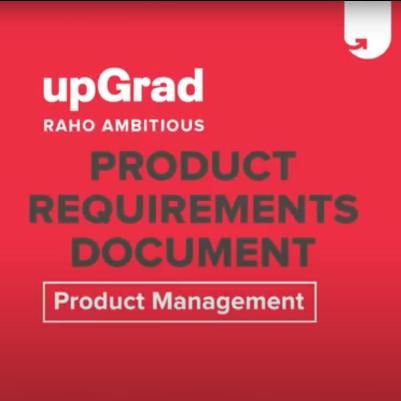

How to create a good Product Requirements Document | Product Management Tutorial | upGrad
51:44
1,981 views


Minimum Viable Product | Basics & Detailed Perspective of MVP | Product Management Tutorial | upGrad
42:42
64,556 views
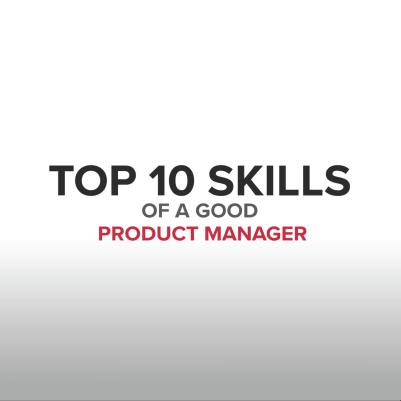

Top 10 Skills Of A Product Manager | Product Management | UpGrad
6:50
2,20,455 views
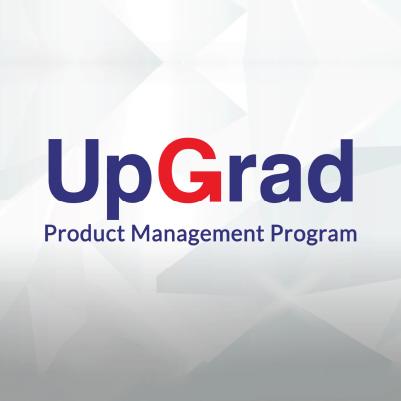

Product Management Certification Program | Product Management Course Demo | upGrad
3:30
5,769 views
Digital Marketing Blogs
You Might Like To Read
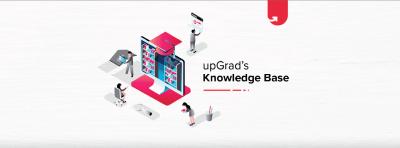
YouTube, the largest hub of audio-visual data, acts as a platform for content creators to give a visual representation of their talents and generate income from it.

Robin Joseph Abraham

Digital Marketing is one of the in-deman field which requires the people to take the brand to another level and build a strong social media presence. The digital marketing courses helps the individual to get acquainted with the digital marketing concepts which helps them to work effectively.

Kamal Jacob
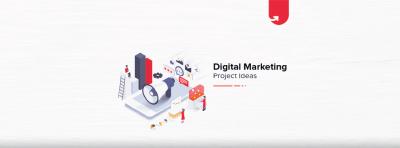
Interested to learn different concepts of digital marketing techniques? Here are the 10 best digital marketing project ideas and topics for a beginner in 2022-23.

Sriram
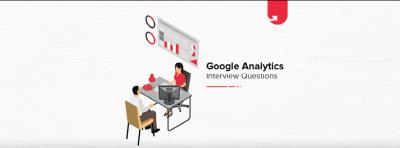
Preparing for Google Analytics Interview? Here is an ultimate guide containing 73 Google Analytics interview questions with answers- Updated 2023

Sriram

Preparing for digital marketing interviews and wish to know more about Google Adwords? Check out this ultimate guide containing top 63 Google AdWords interview questions and answers to help you get a job in 2023.

Sriram K
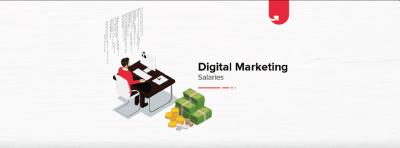
Digital Marketing is growing in the current times and is being seen as the one of the best ways to grow business and reach the specific target audience.

Nitin Gurmukhani
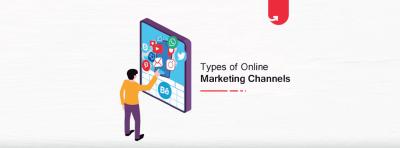
Read this article to find out more about the 9 types of digital marketing channels and the ones that suit your business objectives the best.

upGrad
Learner Support and Services
How Will upGrad Supports You
upGrad Elevate: Virtual hiring drive giving you the opportunity to interview with upGrad's 300+ hiring partners
Job Opportunities Portal: Gain exclusive access to upGrad's Job Opportunities portal which has 100+ openings from upGrad's hiring partners at any given time
Career Mentorship Sessions (1:1)
High Performance Coaching (1:1)
Interactive Live Sessions with leading industry experts covering curriculum + advanced topics
Personalised Industry Session in small groups (of 10-12) with industry experts to augment program curriculum with customized industry based learning
Live Discussion forum for peer to peer doubt resolution monitored by technical experts
Peer to peer networking opportunities with a alumni pool of 10000+
FAQ on FinTech Courses
1. What is FinTech?
FinTech combines the words “Financial” and “Technology.” It refers to any financial service that uses technology to design and deliver financial products and services such as lending, borrowing, mobile payments, viewing account balances and more.
2. Is PayPal a FinTech?
Yes, PayPal is a FinTech platform that offers online financial services such as banking and digital payments through mobile devices such as smartphones and tablets.
3. What is blockchain in FinTech?
Blockchain is a decentralised, distributed public ledger or database shared across a peer-to-peer computer network. A cryptocurrency is a digital currency based on blockchain technology secured through encryption.
4. What are the challenges faced by FinTech?
The major challenges faced by the FinTech industry include data security risks, regulatory compliance, lack of technical expertise and the need to provide a seamless user experience.
5. What are the types of FinTech?
FinTech companies include insurance, mobile payments, international money transfers, crowdfunding platforms, stock trading apps, robo-advisors, cryptocurrency exchanges, equity financing and personal finance management apps.
6. What are the four categories of FinTech?
Four key segments in the FinTech industry include digital lending, payments, insurance and healthcare tech, and security technology.
7. What technology is used in FinTech?
Technologies in FinTech include machine learning, artificial intelligence, blockchain, robotic process automation (RPA), the internet of things (IoT) and others.
8. What are the benefits of FinTech?
Some of the key benefits of FinTech include faster, secure and more convenient financial transactions, more accessible funding, enhanced efficiency, greater customer retention, streamlined financial operations and better risk management.
9. How does FinTech affect the economy?
FinTech encourages the growth of a country's digital economy by promoting technological innovation. It improves the financial landscape of a country which directly impacts the economy.
10. Who uses FinTech?
Both consumers and businesses (B2B and B2C) use FinTech. You use FinTech every time you make an online payment via PayPal or Google Pay. Likewise, online banking apps available on Google Play or the App store are examples of FinTech.
11. Is Bitcoin a FinTech?
Bitcoin is a type of cryptocurrency or digital money. Cryptocurrencies, in turn, are a type of FinTech innovation.
12. How do banks use FinTech?
Applications of FinTech in the banking sector include biometric ATMs, smart chip ATM cards, mobile banking apps, AI-enabled customer service chatbots and e-wallets.
13. What is a FinTech product?
Mobile banking, online payment apps, robo-advisors, crowdfunding platforms, insurance technology, cryptocurrency exchanges, stock trading apps and personal finance management apps are examples of FinTech products.
14. What jobs are in FinTech?
Some prominent job roles in the FinTech industry include Specialists, cybersecurity professionals, Blockchain Developers, Quantitative Analysts, Data Scientists, Artificial Intelligence Experts, App Developers and Financial Analysts.
15. How do I learn FinTech?
You can enrol in any online FinTech certification course to start your learning journey. These online courses are flexible, convenient and relatively less expensive than traditional offline programs.


upGrad Learner Support
Talk to our experts. We are available 7 days a week, 10 AM to 7 PM
Indian Nationals
Foreign Nationals
Disclaimer
The above statistics depend on various factors and individual results may vary. Past performance is no guarantee of future results.
The student assumes full responsibility for all expenses associated with visas, travel, & related costs. upGrad does not .










%20(1)-d5498f0f972b4c99be680c2ee3b792d7.svg)











-ae8d039bbd2a41318308f8d26b52ac8f.svg)

